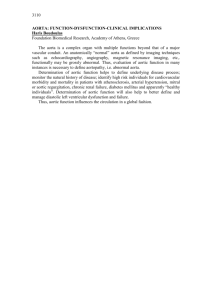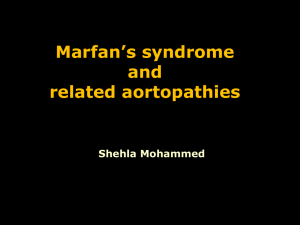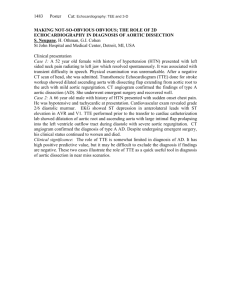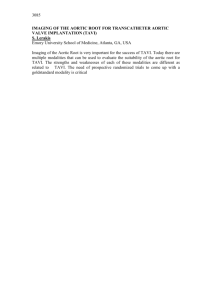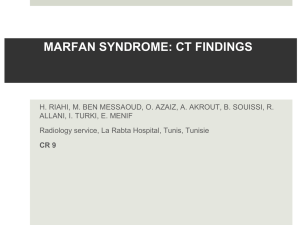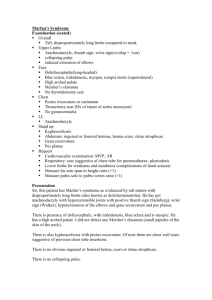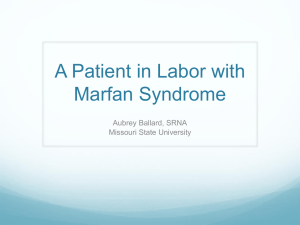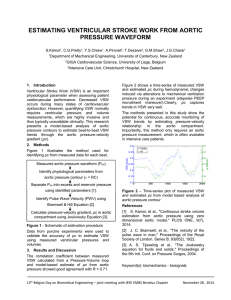Agatha - possible fall 2010 case - Marfan Syndrome
advertisement
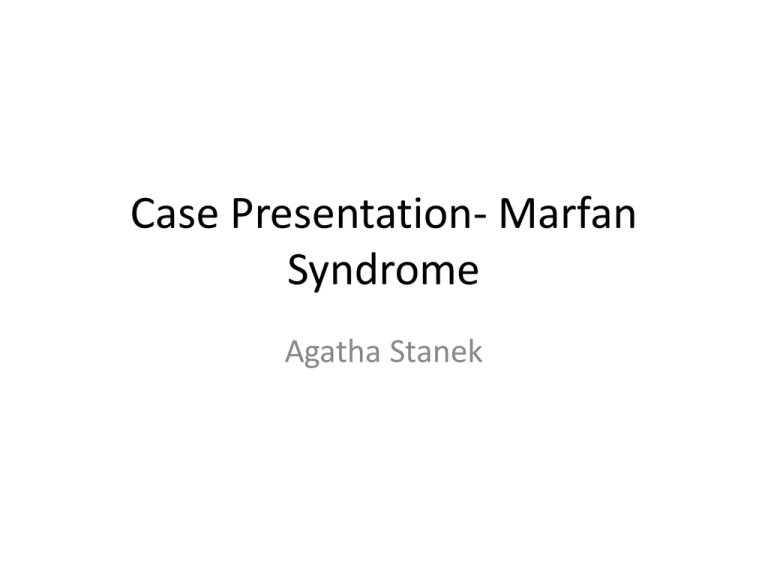
Case Presentation- Marfan Syndrome Agatha Stanek Case presentation • 13 year old female patient presents to clinic for routine check-up. • Patient has myopia but has appropriate prescription • Noticeable thin and lean build of patient with arachnodactyly • Pes planus • Headaches, weakness and occasional pain in the genital area that is relieved in the supine position Patient hx Medical hx: • Broken arm at age 7. • All immunizations are current Family hx: • Father died of an early heart-related death (26) • Aunt has Type 2 Diabetes Social hx • Oldest of 2 children. • Patient lives with grandparents, mother and sibling in downtown area close to their high school • Mother is a full time teacher at a nearby university. Occupational hx: • Patient attending high school; grade 8. Physical Exam • Afebrile • Reduced upper-to-lower body segment ratio (0.85 vs 0.93 • Positive wrist (Walker) and thumb (Steinberg) signs... HEENT: • Notice high arched palate and dental crowding • Narrow face observed • Patient alert CARDIOVASCULAR: • Dysrhythmia- decrescendo diastolic murmur from aortic regurgitation RESPIRATORY: Clear Physical Exam continued SKIN: • Noticeable stretch marks near patient’s lower back area Abd: Clear Nervous system: • Pain in lower spinal region Differential Diagnosis • • • • • • Gigantism and acromegaly Hyperpituitarism Hyperthyroidism Fragile X syndrome Homocystinuria Loeys-Dietz syndrome Additional tests Imaging: • X-rays of spine detects scoliosis • Echocardiogram: presymptomatic aortic root dilation MRI shows: Sagittal width of the dural sac at S1 or below that is greater than the sagittal width of the dural sac above L4 Diagnosis • Marfan’s Syndrome- run test to assess genetic cause • How many body systems must be affected in a patient with this diagnosis if it does not run in one’s family? 3 • Ghent criteria • Dural ectasia explains some of her symptoms... Treatment There is no known cure. General measures: multi-discpilinary approach to include cardiologist, opthamologist, orthopedic surgeon if necessary Fully activity as tolerated. No specific diet Drugs of choice: • Propranolol to decrease force of cardiac contraction and dely aortic root dilatation • Calcium channel blockers to retard further aortic growth Prognosis/ Follow-up • Frequent examinations including echocardiograms at least twice a year until age 18. • Eye examinations If patient becomes pregnant, she must immediately contact physician Possible Complications Skeletal: • Scoliosis, flat feet Eyes: • Retinal detachment, glaucoma, cataracts Cardiovascular: • Aortic dissection/ rupture • Aortic or mitral valve insuffiency • Dilated cardiomyopathy • Bacterial endocarditis Nervous System: • Dural ectasia Respiratory: • Sleep apnea

